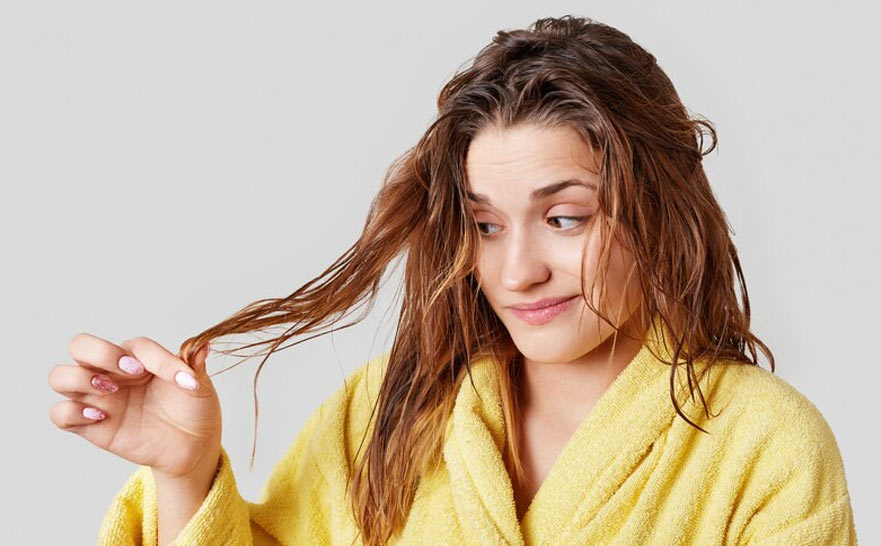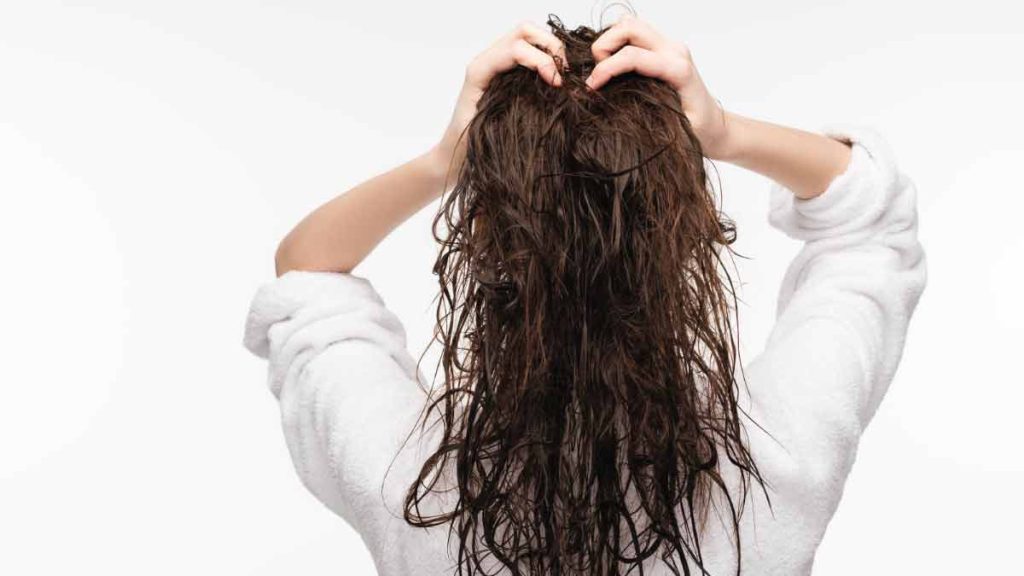
We've all been guilty of throwing ouselves into bed after a hard day's work, hair still wet from a hasty shower. But did you know that this harmless routine is actually the cause of those itchy wavy, unorganised hair, flakes and annoying pimples? Well, to help you understand better, we spoke to our expert, Dr Sanjeev Gulati, Department of Dermatology, Sharda Hospital, Noida, and asked him if this is a myth or fact. Read ahead to find out.
Table of Content:-
Sleeping with wet hair might feel harmless, even refreshing during hot weather. But dermatologists and trichologists suggest that this seemingly minor habit could be quietly wreaking havoc on your scalp and skin, especially if you’re prone to dandruff, acne, or fungal infections.
How Wet Hair Affects Your Scalp Health
If you sleep with damp hair, the water becomes wedged against your scalp for a few hours. Damp and warm conditions are the perfect breeding ground for Malassezia, a fungus that is naturally on the skin but can overgrow and cause dandruff.
"Extended moisture and insufficient airflow may upset your scalp's microbiome.This might lead to irritation, flaking, and a higher risk of seborrheic dermatitis, which are afrequent source of dandruff," explained Dr Gulati.
Furthermore, constant friction of rolling and tossing on a pillow when your hair is wet might make hair weaker, resulting in breakage and scalp sensitivity.
Also Read: Fibre For IBS-Constipation: Everything A Gastroenterologist Wants You To Know

But What About Acne?
You might be surprised to know that your skin can also suffer. Waking up with wet hair can cause:
- Blocked pores across your forehead, cheeks, and jawline from dripping water, hair product buildup, or natural scalp oils.
- More bacteria and yeast transmission from your hair onto your pillowcase, which then compresses against your face for hours.
- Friction-induced pimples, especially if your hair is rubbing directly against acne-ridden skin.
"If you already have hormonal or fungal acne, moisture and bacteria is a recipe for disaster," said Dr Gulati.
Other Risks You May Be Overlooking
- Fungal infections: A perpetually damp scalp can cause excessive growth of fungus, which can not only give rise to dandruff but also an itchy, inflamed scalp.
- Sinus headaches: While controversial, some think that cold, wet hair on the head all night may lead to sinus pressure or headaches in sensitive people.
- Excessive hair loss: Wet hair is weaker and more prone to damage from friction, so it breaks more easily.

Hair & Skin-Protecting Tips
If you're the occasional guilty party who winds up in bed with wet hair, don't worry. Here are some tips approved by dermatologists:
- Air-dry or blow-dry your hair before bedtime, at least to the point of 80–90% dryness.
- Blow-dry with a microfiber towel to soak up moisture without frizzing or damaging.
- Change to silk or satin pillowcases, they minimise friction and avoid bacterial growth.
- Leave your hair loose in a braid or bun if it's still slightly wet.
- Skip heavy nighttime styling products that can transfer to skin and clog pores.
Bottomline
While it's doubtful one night of sleeping with wet hair will destroy your scalp or skin, doing it consistently can definitely lead to dandruff flare-ups and acne breakouts. If you're having continuous skin or scalp issues, it might be worth reconsidering your nighttime routine.
Also watch this video
How we keep this article up to date:
We work with experts and keep a close eye on the latest in health and wellness. Whenever there is a new research or helpful information, we update our articles with accurate and useful advice.
Current Version